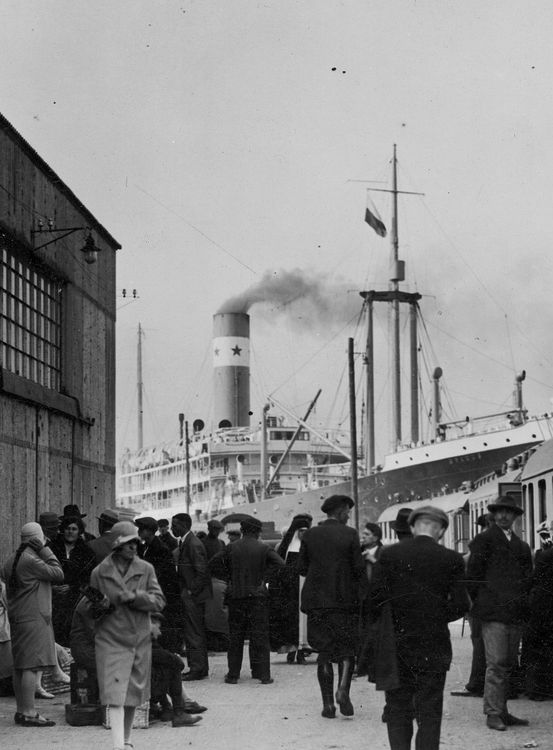Suzana Pârvulescu
Suzana Beres Pârvulescu (1897–1942) was a labour activist and communist operative during an era, spanning most of the period between the two world wars, when the Romanian Communist Party was illegal. Born in a multilingual village in Transylvania, she spoke Hungarian, Romanian, and some German. Pârvulescu faced hardship from an early age: a poor orphan, she had to start working as a domestic servant while still very young. Later, her experiences as a factory worker in the town of Sibiu and exposure to social democratic trade unionism eventually led her to become a communist activist.
Pârvulescu’s first marriage was abusive, and in order to provide for her young children, she began working at a shoe factory in Sibiu, where she witnessed first-hand the harsh conditions faced by workers – many of them women and children. The early 1920s saw a wave of strikes in Romania, and Sibiu in particular had a strong trade union movement. Pârvulescu became involved in union meetings and soon emerged as a vocal advocate for women workers and child labourers, raising concerns about their lack of access to education.
Around 1922, during a major strike at her factory, she was elected a “man of trust” (a workers’ representative), demonstrating the workers’ confidence in her abilities. In 1924, she officially joined the Romanian Communist Party, the same year it was outlawed by the government. Despite the risks, she continued her involvement in underground political activities.
As a dedicated member of the banned communist movement, Pârvulescu took on the role of a “technical worker”, a crucial and dangerous but largely invisible position in the illegal party structure. “Technical workers” were responsible for maintaining secret communication networks, distributing illegal materials, managing safe houses, and organizing covert meetings. Because they had to appear as law-abiding citizens to avoid suspicion, women in particular were often assigned these roles as the authorities perceived them as less likely to be involved in radical political activity.
Pârvulescu’s skill in disguise and deception helped her successfully transport illegal materials between cities. In one instance, she traveled to Arad carrying a basket filled with communist manifestos hidden beneath everyday household items, making her seem like an ordinary housewife returning from a market trip. Her ability to blend in with the crowd of working women allowed her to evade police surveillance while continuing her subversive work.
The authorities sentenced Pârvulescu to prison for her communist activities between 1937 and 1939. Upon her release, undeterred, she resumed her work for the party. In 1940, during a mission in the port city of Constanța on the Black Sea, she again used her acting skills, posing as a distressed mother searching for her conscripted son to observe troop movements and avoid detection by the authorities.
Pârvulescu’s commitment to the communist cause led her to make extremely difficult personal choices. During her time training at a cadre school in Moscow (1932–1935), she requested that her children, who had been left in Romania with her second husband, be brought to the Soviet Union. The attempts of Pârvulescu’s comrades in the USSR and back in Romania to arrange their move, however, failed, pointing to the almost impossible dilemmas radical women faced as committed activists and as mothers.
Suzana Pârvulescu continued her clandestine work up to her death in 1942 after a short illness related to a health issue she developed while imprisoned. Her life story – written and rewritten as early as 1944 by surviving comrades and historians under state socialism in Romania – sheds light on the role of women in the underground communist movement and the broader struggle for workers’ rights in Romania.


